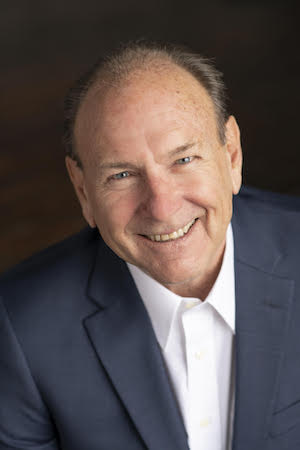Schuetz: On Buying Gaming Legislation
Contributions and retribution make the political world go ’round, and the public should know who’s paying for what
4 min

“There are two things that are important in politics. The first is money, and I can’t remember what the second one is.”
— Mark Hanna
I have beat on this drum before, and no one appears to have listened or cared. Rather than admit defeat on this issue, I will continue to beat this drum. I suspect I am just hard-headed.

It was recently reported in California that the cardroom industry within the state spent more than $3 million to defeat four legislators who voted in favor of a bill that could adversely affect the cardrooms. As reported in CalMatters this was “ … an extraordinary display of political retribution … ” It also was apparently successful, for three of the four legislators failed to be elected.
This is but another demonstration that in politics, money matters, and the notion of “One man, one vote” dating back to the union movement two centuries ago in England, and given something of a rebirth by Nelson Mandela, is a myth in the United States that serves only to deceive people as to how electoral decisions are made.
This notion of buying political positions and decisions certainly is not limited to California gaming issues. It was reported that Elon Musk donated over $270 million in 2024 to support the election of Donald Trump and other Republican candidates. That probably has something to do with why Mr. Musk spends a lot of time at Mar-a-Lago and I don’t.
It has also been reported that Miriam Adelson, of Sands fame, provided approximately $100 million to a super PAC supporting Trump. Again, it is safe to conclude that Ms. Adelson has more political influence than me — and everyone who lives on my block.
Pull back the curtain
I believe the public has a right to know how firms and individuals spend money to shape political control and legislative issues.
There used to be a lot of folks who thought like me, and this was right after the Watergate scandal. Because so much of the nonsense perpetrated by President Richard Nixon and his band of merry men was funded by untraceable contributions during his election and the coverup of the Watergate break-in, the nation set out on a course to clean it up.
These clean-up actions seemed to have a half-life, however. Through lack of enforcement, legislative depreciation, adverse legal decisions, circumventions, and public indifference, they presently provide little illumination as to what is happening.
One would be foolish to think that legislators will solve this, not unlike the joke that politicians will solve the insider stock trading issue that politicians are abusing. They benefit too much from their ability to execute inside trades to do anything about it. See here, here, here, and here.
Because so many politicians seem to be more interested in lining their pockets than serving the public, they are generally disrespected by the public. Approximately 19% of the public currently approves of how Congress is handling its job. The only people who seem to admire politicians in this day and age are politicians, which indicates the extraordinary egos these people have.
Online betting operators also appreciate politicians because they know they will dance for dollars.
The reality is, as well demonstrated by Gallup, that many politicians are fundamentally lacking in anything resembling character, honesty, and integrity and will work to obscure the many ways they welcome themselves to the feeding trough of campaign dollars and other perks. See here and here. The point is, in the many years since Watergate, it has not been easy to understand how money flows to politicians.
So, while pretending to represent the public, they are actually representing the people who hand them money. And one wonders why bettors take it in the short end as online sports betting spreads nationwide?
It’s up to the regulators
In an ideal world, it would be nice if the public could understand who was paying for what in the area of laws surrounding online sports betting, but it is not that simple.
An entity offering progress in this area is the non-profit Open Secrets. For example, if one inputs “DraftKings” in the search field here, they will be able to hit the “next” button for numerous pages until they hit the free limit of 500 different donations made by DraftKings. One must pay for the information to go beyond the 500 contributions listed.
The point is, it is often hard to source the cash flowing to politicians, and Open Secrets is to be applauded for taking on the task, for it is no easy task. It is also essential for the public to know who is paying for what, for this will allow them to understand that the legislators are not necessarily serving the public but rather the folks signing the checks. Even with Open Secrets, it involves knowledge, awareness, and effort.
Regulators could solve this. If the regulators believe that transparency is an essential element of a regulated industry, they could cause the operators to report all payments to politicians and lobbyists within the relevant jurisdiction. They could then list these amounts on the regulatory website every quarter and publish these when they release the gaming performance numbers.
This would help voters and journalists secure this information quite easily. Not all regulators would necessarily follow this course, however, for many regulators are looking to please the industry so that they might waltz through the revolving door. For those regulators wanting to seriously commit to transparency and assist the public in understanding how decisions are made, this is an excellent service they can provide, for, after all, they should represent the public.
Those who possess character, honesty, and integrity will.
—
Richard Schuetz entered the gaming industry working nights as a blackjack and dice dealer while attending college and has since served in many capacities within the industry, including operations, finance, and marketing. He has held senior executive positions up to and including CEO in jurisdictions across the United States, including the gaming markets of Las Vegas, Atlantic City, Reno/Tahoe, Laughlin, Minnesota, Mississippi, and Louisiana. In addition, he has consulted and taught around the globe and served as a member of the California Gambling Control Commission and executive director of the Bermuda Casino Gaming Commission. He also publishes extensively on gaming, gaming regulation, diversity, and gaming history. Schuetz is the CEO American Bettors’ Voice, a non-profit organization dedicated to giving sports bettors a seat at the table.






